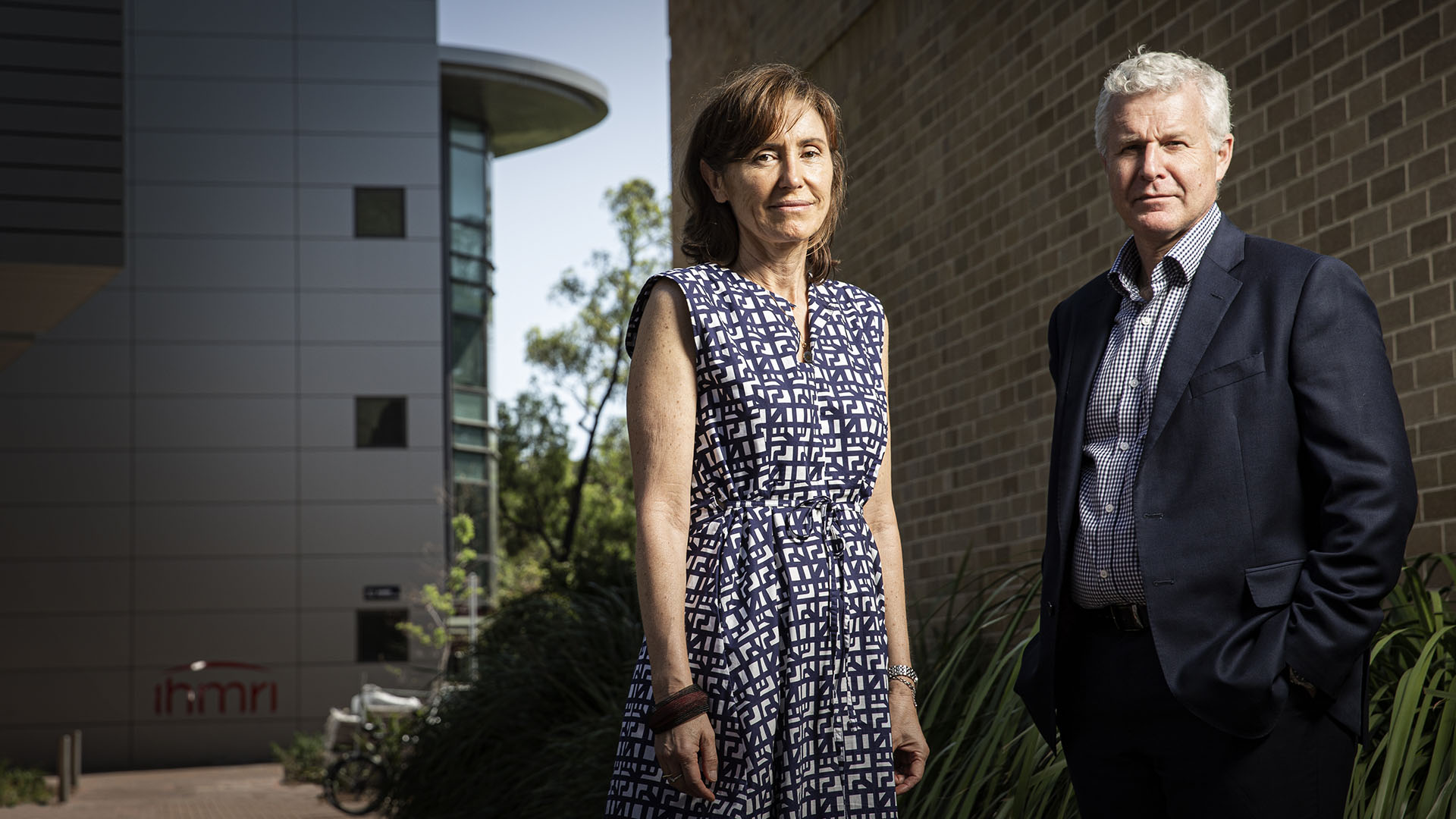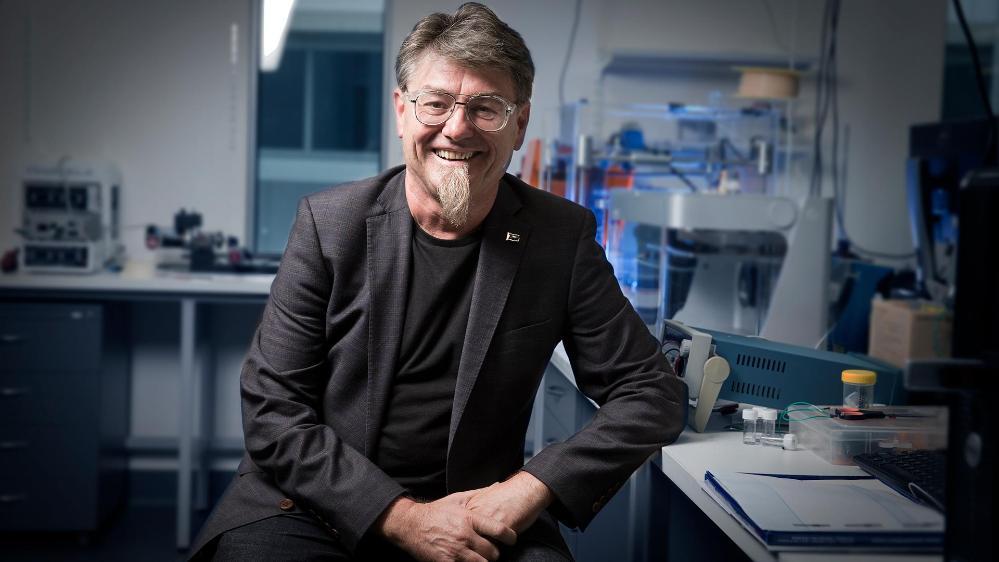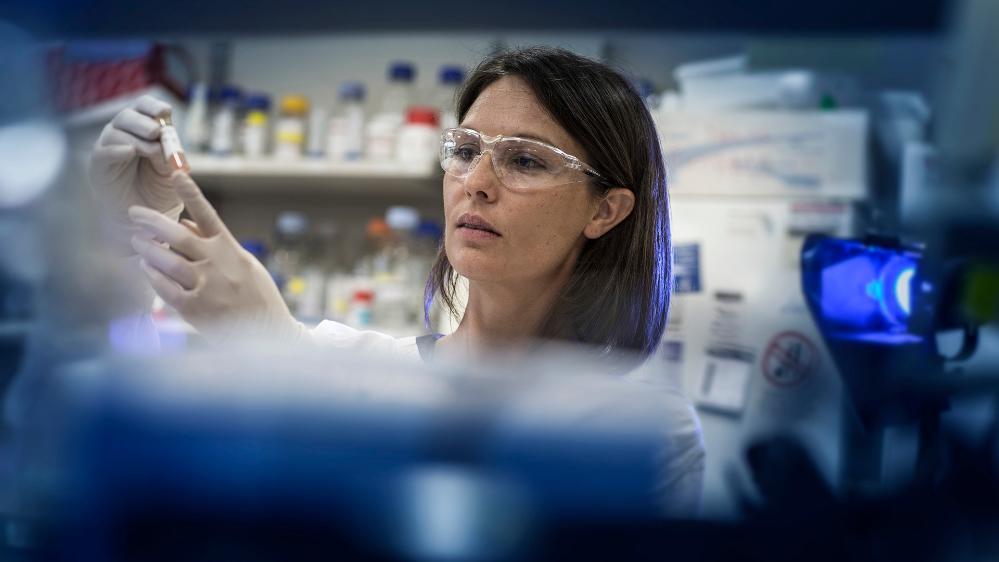Cancer Institute NSW funds research into pancreatic cancer and head and neck cancer surgery

University of Wollongong cancer researchers Professor Marie Ranson, Associate Professor Bruce Ashford, Distinguished Professor Gordon Wallace and Dr Kara Vine-Perrow have received funding from the Cancer Institute NSW.
Professor Ranson, an expert in molecular biomarkers of cancer invasion and metastasis, head and neck surgery specialist Professor Ashford and bioengineering pioneer Professor Wallace are part of a team that was awarded one of only two Translational Program Grants worth $3.75 million over five years.
Their project, 'Reducing the Morbidity of Head and Neck Cancer Treatment', is led by Professor Jonathon Clark from the Chris O'Brien Lifehouse/University of Sydney and looks to lessen the impact of head and neck cancer surgery.
Associate Professor Ashford, who is the Illawarra Health and Medical Research Institute's Clinical Director, said their research will further the quest to reduce the burden of surgery in head and neck cancer.
"Head and neck cancers are a debilitating group of diseases which impact enormously on patients' quality of life, perhaps more than any other," he said.
"We are pursuing predictive biomarkers of cancer progression to reduce the effect of surgery, and by better understanding the biology of head and neck cancer to allow for both early detection and the development of novel treatments.
"Additionally, with the enormous capability of the Intelligent Polymer Research Institute lead by Professor Gordon Wallace, we are investigating using technology such as 3D bioprinting for post-surgery reconstruction."

Distinguished Professor Gordon Wallace, Director of Intelligent Polymer Research Institute.
Professor Ranson, a Senior Fellow at IHMRI, said the translational aspect is a standout of their work.
"The strength of the team at IHMRI is that we marry busy clinical teams with top researchers. The combination of clinical translational research really happens within this collaboration," Professor Ranson said.
Dr Vine-Perrow, a Senior Research Fellow and Group Leader of the Targeted Cancer Therapeutics Laboratory at IHMRI, received the Career Development Fellowship worth $600,000 over three years to continue her research into pancreatic cancer treatment.
Pancreatic tumours are one of the deadliest cancers, with late-stage diagnosis and resistance to chemotherapy resulting in a survival rate of around 9 to 13 months.
Dr Vine-Perrow and her team have developed a novel drug delivery strategy which can deliver a combination of drugs directly into pancreatic tumours without the harmful side effects.
"Outcomes from this project will provide important data to increase our knowledge of the use of chemotherapy with immune priming agents and checkpoint inhibitors as a new approach to treating pancreatic cancer," she said.

Dr Kara Vine-Perrow, a Senior Research Fellow and Group Leader of the Targeted Cancer Therapeutics Laboratory at Illawarra Health and Medical Research Institute.
The fellowship will provide salary support to Dr Vine-Perrow, as well as fund project costs and the employment of a research assistant, to aid collaboration with researchers around the globe.
"This Fellowship will allow my team to develop much needed preclinical models to assess our innovative immunotherapy approach. This will not only benefit my research group, but researchers more broadly, it will make the research leading to new treatments for pancreatic cancer faster and more efficient," she said.
"This is a highly prestigious and competitive award. I am excited and honoured to have received the fellowship. It will enable me to advance my career in pancreatic cancer research, build translational research capacity in the Illawarra and use novel techniques and approaches to address an unmet clinical need."






